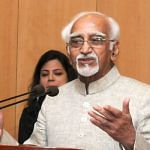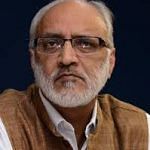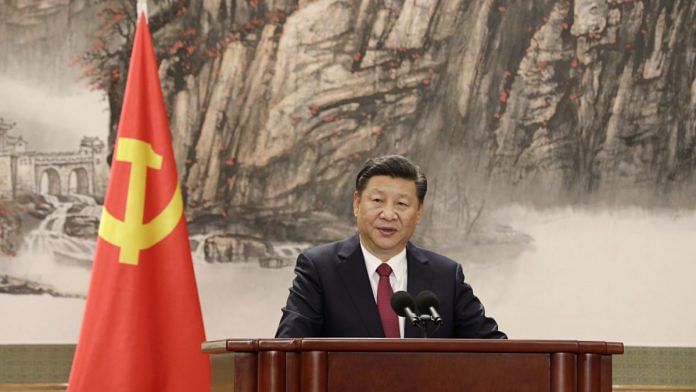 Covid-19 has sharpened great power politics
Covid-19 has sharpened great power politics
Harsh V Pant | Professor, King’s College London
Hindustan Times
Pant comments on China’s political power play and how it is reaping the benefits of this global disaster. The lack of leadership by US and President Donald Trump’s ‘America-first’ policy has made China a necessity for many nations in terms of medical supplies for the coronavirus. He also notes that China’s handling of the outbreak has raised serious global concerns as well as the role of WHO, which “seems to have made itself subservient to Chinese interests, losing credibility in the eyes of its other stakeholders”. He suggests that India should be prepared to navigate the externalities of this challenging environment.
 The safety of healers
The safety of healers
S.K. Sarin | Director, Institute of Liver and Biliary Sciences, Delhi
The Indian Express
Sarin appreciates the ordinance passed by the central government regarding acts of violence against doctors and other medical staff, but hopes that the ordinance will remain in force even after the pandemic gets over. He also points out that merely the enactment of the law is unlikely to curb the “near criminal acts done by patients and their relatives”. There is a need to educate society about the complexities of decision-making in severe health cases and that healthcare professionals genuinely do their best, the author notes.
 Rollback the distrust, remember the core values
Rollback the distrust, remember the core values
Hamid Ansari | Former vice president of India
The Hindu
Ansari argues that the present approach of distrust towards a particular section of society is disquieting, resulting in resentment and injection of suspicion and viciousness in social relations. “Societal relations are fragile and need constant nursing,” he writes. He notes that the plurality of our society and its diversity is an existential reality and social peace is a prerequisite for peace and development, he concludes.
 At the edge of a new nuclear arms race
At the edge of a new nuclear arms race
Rakesh Sood | Former diplomat and Distinguished Fellow, ORF
The Hindu
In mid-April, US released a report raising concerns about the fact that China may be conducting low-yield nuclear tests, which is in violation of the Comprehensive Nuclear-Test-Ban Treaty (CTBT). Sood questions why CTBT has failed to enter into force even after it came into being in 1996. He argues that the US’ unipolar moment is over and strategic competition among major powers is back. As the US faces new nuclear threats because both Russia and China are increasing their reliance on nuclear weapons, it has to expand the role of its nuclear weapons. New rivalries have already emerged and the resumption of nuclear testing signals the demise of CTBT, marking the beginnings of a new nuclear arms race, the author notes.
 Rebooting the economy: India needs a stimulus package of at least 5% of GDP
Rebooting the economy: India needs a stimulus package of at least 5% of GDP
Ashok Gulati | Infosys Chair professor for Agriculture, ICRIER
Financial Express
Gulati argues that to bounce back from the pandemic quickly, India needs a stimulus package of 5 per cent of the GDP and also needs to focus on eastern India as it faces a double challenge. Most migrant labourers vying to return home, belong to eastern UP, Bihar, Jharkhand. In these states, agriculture is the major job-producing sector but it is already burdened with a large labour force, and the returning migrant population will only add to the crisis.
The Centre and the RBI are doing the “heavy weightlifting” in terms of making supplies operational again, but the collapse of demand needs to be addressed. Food can easily revive demand as the poor spend almost 60 per cent of their expenditure on food. A special investment package for the laggard east India to build better agri markets, godowns, housing, healthcare and support to returned migrants will increase incomes, and in turn give rise to demand for food and manufactured products.

An opportunity for India to come out on top from this crisis
Kiran Mazumdar-Shaw | Chairperson of Biocon Ltd.
Mint
Shaw argues that India must focus on health, economics and geopolitics to come out on top of the Covid-19 crisis. Data shows that India has succeeded in flattening the curve but we need to scale up testing to contain the virus in areas and break spread to new areas. India needs “coordinated” fiscal and monetary policies, with a huge financial stimulus to boost industrial production across small and large enterprises. Geopolitically, India can strategically position itself to be part of global supply chains and negotiate as equal partners with the US, EU or Japan.
 Why Franklin-type fiasco will keep repeating
Why Franklin-type fiasco will keep repeating
Debashis Basu | Editor of www.moneylife.in
Business Standard
Basu highlights how Franklin Templeton India Mutual Fund last week announced that it was winding up six debt schemes that held more than Rs 27,000 crore, not allowing fresh subscriptions or exits from the schemes. Investors are strapped and people are worried about their other mutual funds. Basu believes the cause is partly external due to the Covid-19 crisis, and partly internal due to risk and borrowing taken on by Franklin, along with the fund industry in general. He argues that regulators need to fix accountability of credit-rating companies and fund companies by enforcing clauses that claw back the fees of all cases that blow up and they also need to fix debt fund classification, 16 classifications are not needed.
 And Who Will Pay This Pan-Piper?
And Who Will Pay This Pan-Piper?
Ravindra Shrivastava | Senior advocate, Supreme Court
The Economic Times
Shrivastava argues that although the government has ordered employers to ensure timely payments to employees without deductions, work not being allowed to be conducted during the lockdown means employers have to bear huge financial costs at an already difficult time. Compliance with the government’s order doesn’t mean every employer is legally obligated to pay their employees during lockdown, as their legal responsibility is governed by the Payment of Wages Act, 1936, which admits “just exceptions”. The Industrial Disputes Act 1947 also has provisions for laying off employees due to natural calamity. The government order is a socio-economic measure to alleviate conditions of the poor, and under the Disaster Management Act they must provide “minimum standards of relief” to all those affected.



